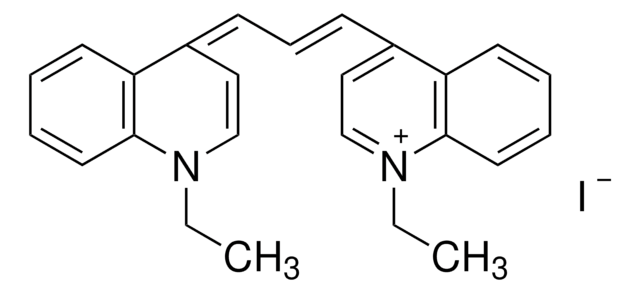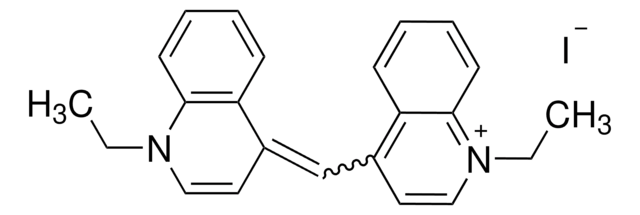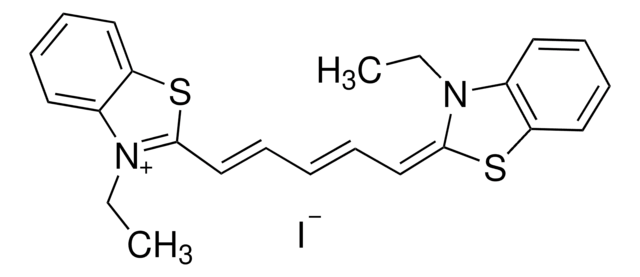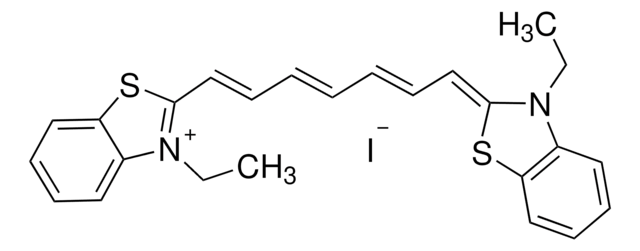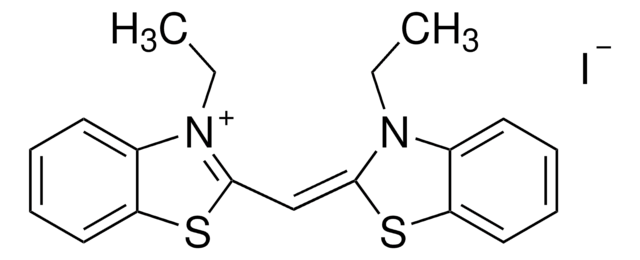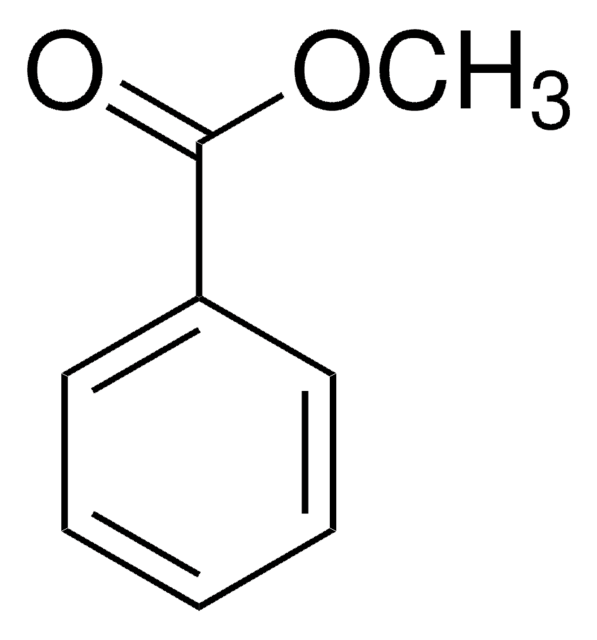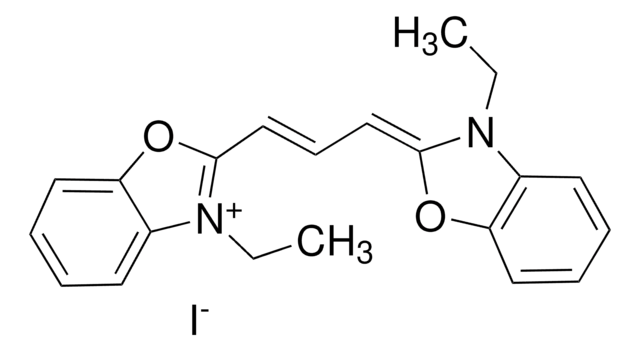323764
1,1′-Diethyl-2,2′-cyanine iodide
97%
동의어(들):
1-Ethyl-2-[(1-ethyl-2(1H)-quinolinylidene)methyl]quinolinium iodide, Decynium 22, Pseudocyanine iodide, Pseudoisocyanine iodide
About This Item
추천 제품
Quality Level
분석
97%
양식
powder or crystals
mp
273 °C (dec.) (lit.)
λmax
524 nm
ε (흡광계수)
≥25000 at 487-495 nm in ethanol
응용 분야
diagnostic assay manufacturing
hematology
histology
저장 온도
room temp
SMILES string
[I-].CCN1\C(C=Cc2ccccc12)=C\c3ccc4ccccc4[n+]3CC
InChI
1S/C23H23N2.HI/c1-3-24-20(15-13-18-9-5-7-11-22(18)24)17-21-16-14-19-10-6-8-12-23(19)25(21)4-2;/h5-17H,3-4H2,1-2H3;1H/q+1;/p-1
InChI key
GMYRVMSXMHEDTL-UHFFFAOYSA-M
일반 설명
애플리케이션
신호어
Danger
유해 및 위험 성명서
Hazard Classifications
Acute Tox. 2 Inhalation - Acute Tox. 2 Oral - Acute Tox. 4 Dermal - Eye Irrit. 2 - Skin Irrit. 2 - STOT SE 3
표적 기관
Respiratory system
Storage Class Code
6.1A - Combustible acute toxic Cat. 1 and 2 / very toxic hazardous materials
WGK
WGK 3
Flash Point (°F)
Not applicable
Flash Point (°C)
Not applicable
개인 보호 장비
Eyeshields, Faceshields, Gloves, type P3 (EN 143) respirator cartridges
이미 열람한 고객
자사의 과학자팀은 생명 과학, 재료 과학, 화학 합성, 크로마토그래피, 분석 및 기타 많은 영역을 포함한 모든 과학 분야에 경험이 있습니다..
고객지원팀으로 연락바랍니다.

